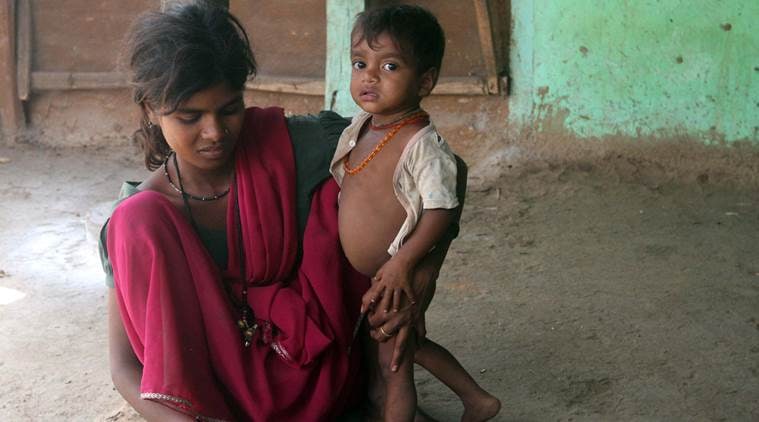 Only 0.46 per cent of funds provided by the Centre to the Punjab government for implementation of the Poshan Abhiyaan or the National Nutrition Mission in the state has been utilised till now. (File)
Only 0.46 per cent of funds provided by the Centre to the Punjab government for implementation of the Poshan Abhiyaan or the National Nutrition Mission in the state has been utilised till now. (File)
ONLY 0.46 per cent of funds provided by the Centre to the Punjab government for implementation of the Poshan Abhiyaan or the National Nutrition Mission in the state has been utilised till now. This data, which was provided by Union Cabinet Minister for Women and Child Development Smriti Irani in a reply to a query tabled in Rajya Sabha in December, reveals that only Rs 30.88 lakh from the total Rs 6,909.84 lakh budget provided by the Centre has been utilised to carry out activities under the scheme.
The Poshan Abhiyaan was announced by Irani in December 2017, setting a deadline of three years to achieve nutrition goals under it. It aims to improve health parameters through inculcating good nutritional habits in certain vulnerable demographics to curb malnutrition, stunting, wasting and anemia in these groups. These demographics include children between the age of 0-6 years, adolescent girls, pregnant and lactating women. As part of the scheme, an integrated approach is to be implemented to create awareness and provide provisions for cooking and consuming more nutritional food.
According to information tabled by the minister in Rajya Sabha, Rs 7,411.3 crore have been provided as a budget to all states and union territories to carry out activities under the flagship scheme until 2019. When the mission was announced in 2017, Rs 9,046 crore had been earmarked by the government to be released to states and UT’s through the course of the programme.
Apart from the Rs 60 crore provided by Centre, out of which only 0.45 per cent was utilised, Rs 17 crore were the budget set by the state government to fulfil the targets of the scheme. These targets include decreasing the prevalence of stunting, underweight, low birth rate and anemia in women and children by 2022.
“Yes, we are yet to spend most of our budget as of yet, but there are many valid reasons for the same,” said Raji P Srivastava, principal secretary, Social Security and Development of Women and Children, for the Punjab government. “Firstly, the funds were finally allotted to us in August 2018, so we have had just about a year to implement the scheme. Furthermore, most of our funds will go into buying technology for monitoring the health parameters of children and women who are covered under the scheme, which we are in the process of acquiring now,” he added.
Apart from data given in the National Family Health Survey (NFHS) 2015-2016 and the Consolidated National Nutrition Survey (CNNS) 2018-2019, there is no specific data collected under Poshan Abhiyaan to monitor the success of implementation of the mission. Smartphones enabled with special provisions for entering data on women and children are to yet to be provided to anganwadi workers in Punjab. Apart from smartphones, machines for accurate monitoring of weight and height of children and adults need to be placed in the 27,292 anganwadi centres in Punjab.
“Rs 57 crore will go into acquiring these machines and technology alone. The tendering process has taken time because no company up to our standards has approached us yet. We have issued our fifth tender now for procurement of these machines and smartphones, and pre-procurement screening of the company’s products is underway,” says Abishesk Latawa, a developmental consultant from Tata Trust working for the Punjab government to aid implementation of Poshan Abhiyan in the state.
Except for Latawa, no other consultant has been hired by the government as of yet to implement the scheme in the state. In comparison, the neighbouring Union Territory of Chandigarh has three consultants to execute specified functions under the programme. An advertisement has now been issued by the government to hire 182 employees on a contractual basis to work for Poshan Abhiyaan in the state. The online application for the same was opened on January 7 this year.
Though Punjab fares comparatively better than other states with regards to rates of malnutrition, its children suffer from alarming rates of certain micro-nutrient deficiencies. The CNNS report of 2018-2019 revealed that 67 per cent children aged 1-4 and 51 per cent aged 5-9 suffer from iron deficiency. Punjab also has the highest number of children with Vitamin D deficiency.